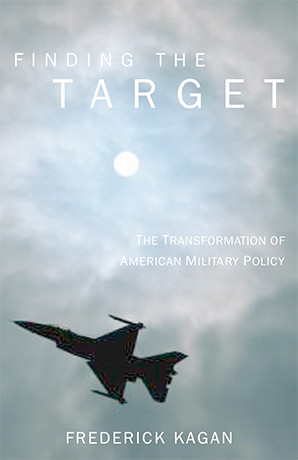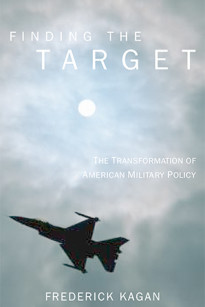The American military has met a daunting set of challenges over the past few decades, from facing down the vast Soviet armies to hunting individual terrorists in the mountains of Afghanistan. Throughout this period, the armed forces have been engaged in a continual process of reinvention, commonly called transformation. Military officers and civilians have been constantly forced not only to cope with the urgent demands of present crises, but also to think about the future development of the U.S. military. The first Gulf War complicated this effort by obscuring defects in American strategic thought behind extraordinary military success. The second Gulf War has obscured the matter even further, as an apparent military success turned into a long and difficult struggle.
Frederick W. Kagan, a leading military analyst, traces the history of U.S. national security strategy and the intellectual background of current debates about military transformation. Finding the Target takes readers into the heart of covert Pentagon disputes over the future of the American military, and shows that the ongoing problems in Iraq and Afghanistan flow from basic flaws in the vision of warfare that animates military and national security strategy today. Kagan makes the case that over-reliance on high-tech solutions ignores the basic purpose of war: the use of force to achieve political objectives. The course of U.S. military development, he argues, must change so as to incorporate political objectives directly into planning at all levels. If it does not, the American armed forces may well succeed in transforming themselves into a military that is incapable of achieving victory in the conflicts of tomorrow.





